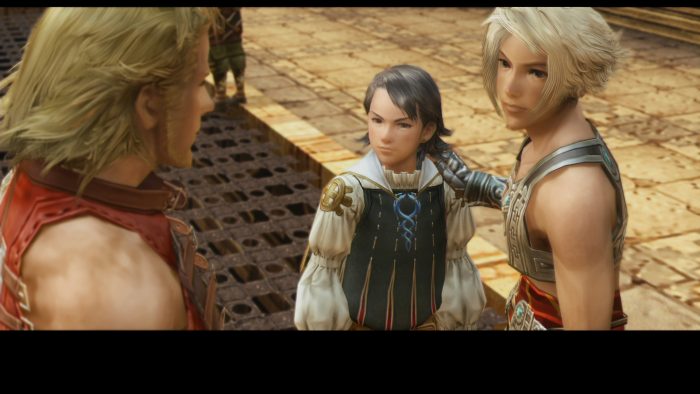Final Fantasy XII‘s tale of a political power struggle in a land plagued by war is nothing groundbreaking; the premise is common and has arguably been done better. Still, while reviewing the remastered version of the game, The Zodiac Age, I found myself far from bored. The overall plot might have been very conventional, but the wonderfully charming ensemble ensured that I had to see what happened next in the narrative.
There are two major reasons that the ensemble succeeds in being so special to me: Individual arcs for each character, as well as an element of loss that binds them all together. Every party member has had something taken from them in some way, be it loved ones or even just personal honor. Perhaps my favorite arc was that of Ashe, Princess of Dalmasca, who lost not only her father and fiancé, but her kingdom as well. Much of XII is focused on Ashe’s goal to reclaim Dalmasca, and she’s constantly struggling with just how far she’ll go to do so. Does absolute power truly corrupt absolutely, and if it does, will it corrupt her? It’s an intriguing dilemma to see a character wrestle with, and I felt like I watched her grow as a person by the end of the game.
Final Fantasy XII perfectly showcases how a compelling cast is integral to the success of an RPG…
Another great thing about the cast is how the core six gradually adapt to each other, to the point that they eventually rely on one another for help and guidance. The sky pirates Balthier and Fran are initially reluctant to expand from being a duo, and I loved watching them slowly warm up to everyone. Balthier especially lives up to his self-proclaimed title of the “leading man,” playing an important moral role in Ashe’s arc. Likewise, seeing the pair of orphans, Vaan and Penelo, discover their own place in the world was emotionally satisfying and tugged on my heartstrings. At the start of the game, the two can only count on each other after losing their families; by the end, they’ve both found their own definition of family with the rest of the crew.

Final Fantasy XII‘s main villain, Vayne, is the only real weak link, coming off as evil just because the game needs a bad guy. Thankfully the game’s secondary villain, Doctor Cid, more than makes up for this. Cid is as threatening as he is conniving, creating a complex and interesting enemy for our band of heroes as he plays with them like they’re marionettes, plucking their strings to lead them right where he wants them. Both Vayne and Cid might quest for power, but the way that the latter pursues his goal is far more entertaining to witness.
Cid is an example of how to make a side character matter. However, I found that every side character—not just Doctor Cid—was important to both the plot and the overall world building, never feeling like they lacked a proper purpose. Some even have their own arcs, including one of my favorite Final Fantasy characters, Larsa.
Overall, the game is engaging not because of its typical plot, but because of how well the unique characters draw the player into the world. The narrative is far from one of my favorites in the series, but its ensemble definitely is. Final Fantasy XII perfectly showcases how a compelling cast is integral to the success of an RPG and proves that good characters can improve and make up for a lackluster story.



